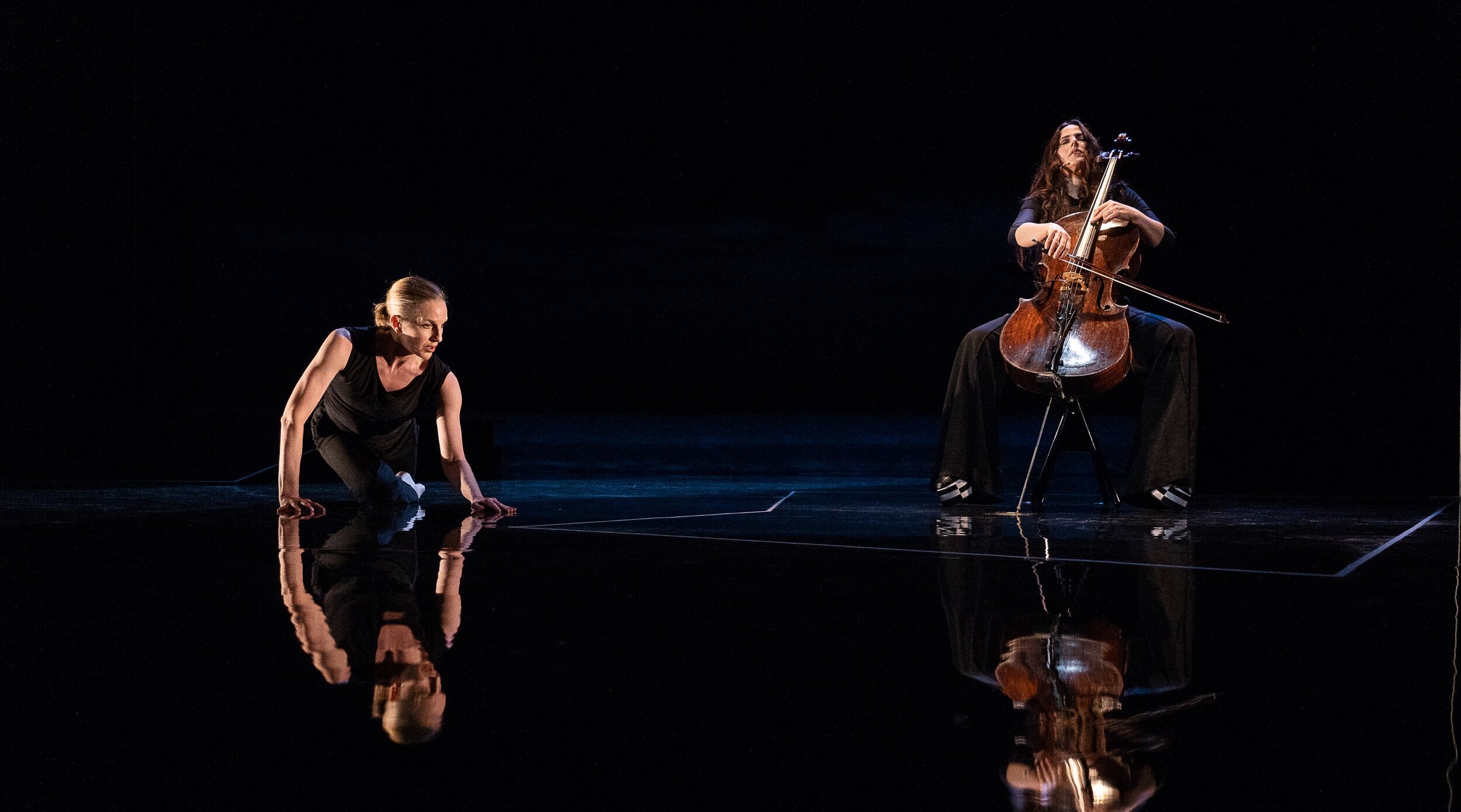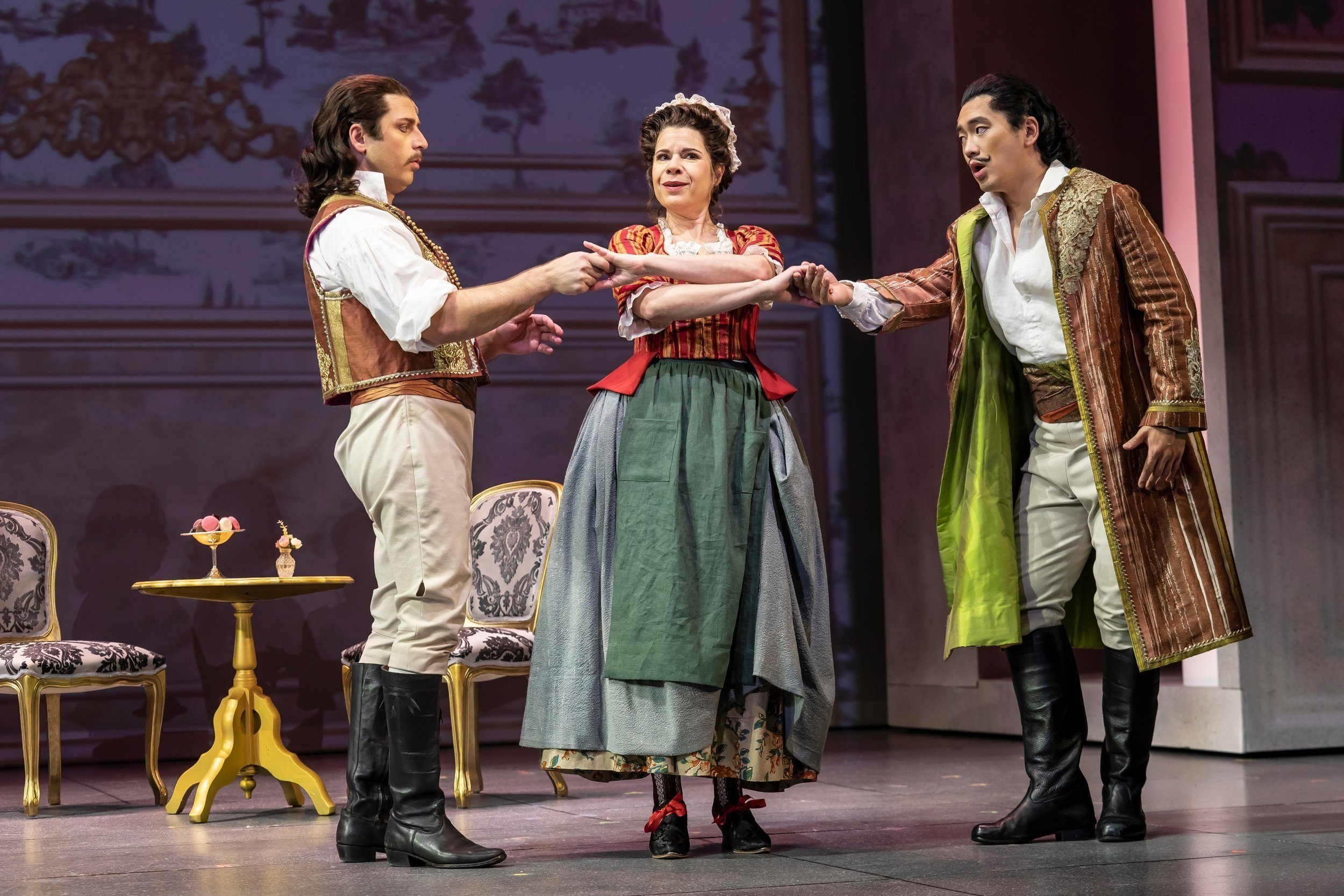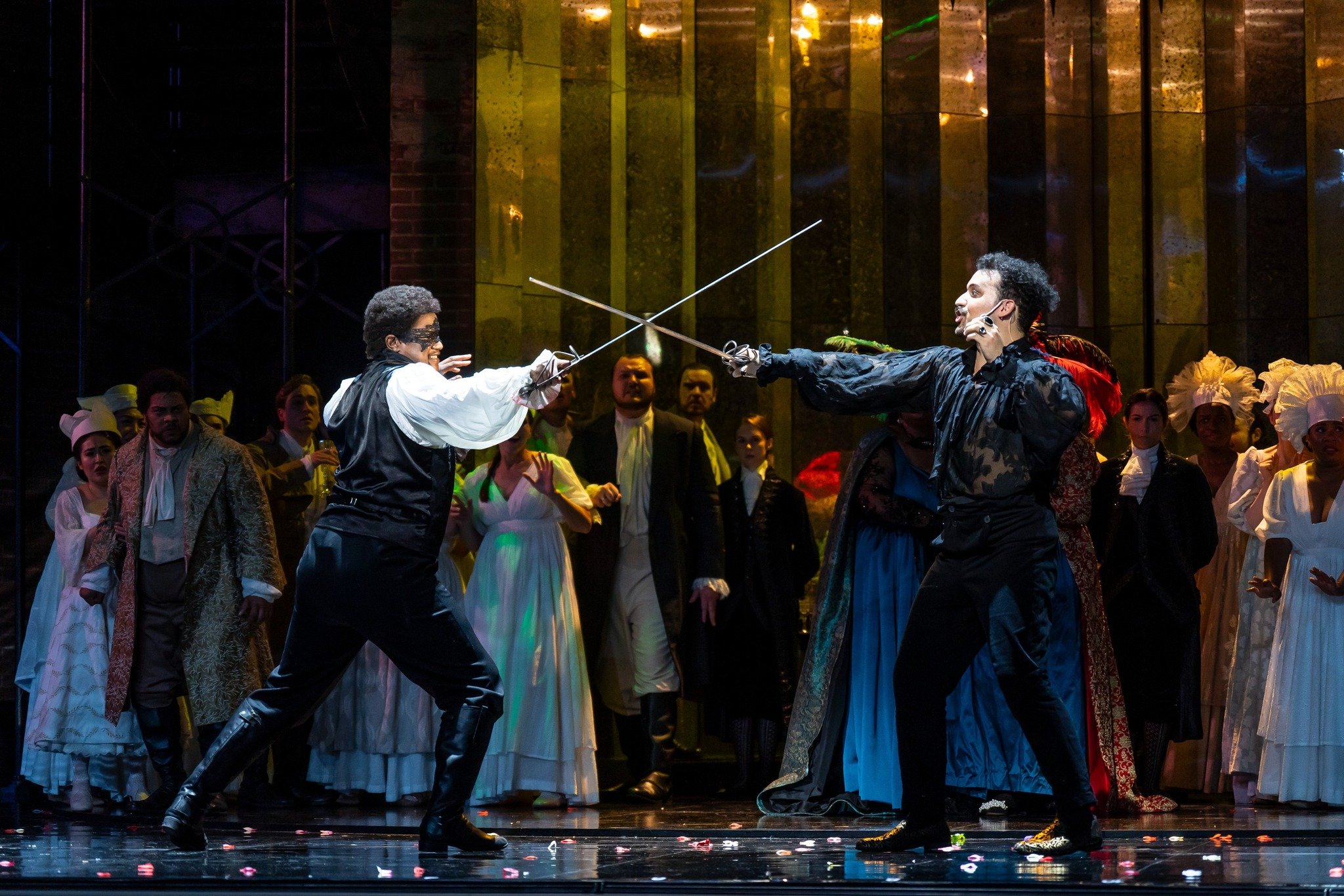VO's Effervescent La Cenerentola

Well-sung, spirited, untiring, and effervescent…
The Virginia Opera had a hit on its hands with Rossini’s La Cenerentola last weekend. For Saturday evening’s show at George Mason University (there was also a Sunday matinee) the house was nearly full, and the standing ovation afterwards was boisterous. It is good to see this fine regional company doing well in today’s fragile, parlous arts environment, and especially so when taking the risk of a lesser-known work.
Though La Cenerentola was not always so. Written in white-heat over just 24 days and premiered in 1817, it became Rossini’s most widely-heard opera throughout the 19th century, eclipsing even The Barber of Seville. It later fell out of favor, but has had something of a revival in our lifetimes, as singers with the proper (but rare) voice-type took it back up. It is one of several operatic settings of the Cinderella story (itself an updating of folk-tales from millennia ago), here with silver bracelets rather than a glass slipper and the cruel step-parent being a male. There is no fairy godmother or any magic at all; the libretto is purely a morality play (though a comic one), where Cinderella is indifferent to the prince and instead falls in love with his valet, not knowing that the two have switched places in order to gauge people’s unguarded behavior.
Though Rossini’s operas lack the taut drama of Mozart’s masterpieces, their appeal is both higher and lower. There are no psychological layers to the comedy; it’s all on the surface and can be played as clownishly as one might wish. But the vocal demands are exquisite, calling for control and agility that can defeat some of the greatest artists in the world and which incite the most passionate debate among the cognoscenti. La Cenerentola is a true ensemble piece, with seven principal roles. The title character (here named Angelina) does not dominate. Other than “Non più mesta,” her showstopper aria that concludes the show, she is just one of several players with a story to tell.
And thus, the work was ideal for this young, vibrant VO cast, all ambitious artists who crave stage time. Some voices are still developing but there were no real weaknesses, just some perhaps-too-soon choices. Alyssa Martin (Angelina) was pert and lovely, but the voice is centered a bit too high for the role. Her part requires a robust lower register to match the fioritura up high; freaks of nature like Joyce DiDonato and Cecilia Bartoli are the current archetypes, and there are few others today who can really do justice to this unusual set of demands. David Walton (Ramiro) also came up a bit short. His light tenor, while pleasing and flexible (no trouble at all with the high C’s in “Si, ritrovarla io guiro”) did not match the projection of his colleagues, and he frequently disappeared in the ensembles.
The others, though, were superbly cast. The two mean step-sisters, Symone Harcum and Whitney Robinson, chewed the scenery with non-stop buffoonery, but their voices were assured and ringing. Dale Travis (Don Magnifico), effortlessly spat out patter like a woodpecker, and Karl Butterman (Alidoro) delivered commanding force, though there’s already a hint of a beat in his young voice. I was most impressed with Joseph Lattanzi (Dandini), whose instrument sounds fully-formed; he matched Martin’s coloratura note-for-note, but also spun a legato that was rich and luscious in all registers.
Conductor Adam Turner held things together well between stage and pit; there was no special feel for Rossini’s Italianate phrasing in the overture, but the orchestra, drawn from the Virginia Symphony, played cleanly and alertly. Sets and costumes were high-class. The lighting design was problematic at times, with key characters sometimes in darkness, a problem I’ve noticed in other VO productions, likely due to the technical challenges of mounting each show in three different halls around the state.
Director Kyle Lang had sort of a bipolar approach. The stage business was often so manic that you couldn’t take it all in at once; I imagine that learning the blocking of some of the ensembles took longer than learning the music. At other times the characters were surprisingly static; the love duet in Act II could surely have had a bit more action.
All told, though, this production must count among the VO’s best; well-sung, spirited, untiring, and effervescent. May this company live long and prosper.





